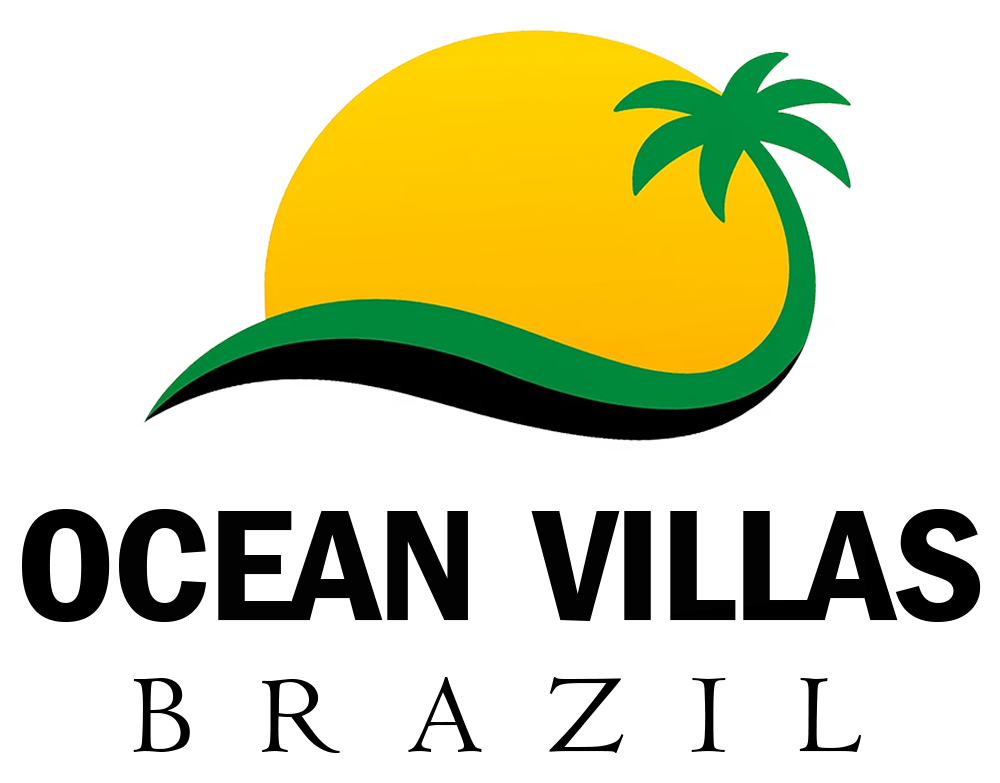How to Buy Real Estate in Brazil: A Guide for Foreigners
Brazil’s real estate market shows remarkable growth potential. Market experts predict a 6% annual expansion between 2018 and 2028. This presents an exciting opportunity for property investors.
The timing couldn’t be better. The Brazilian Real sits at a 20-year low against major currencies. Foreign real estate investments topped US$4.7 billion in 2022 alone. This makes Brazilian property an attractive option to think over. São Paulo’s city center offers luxury apartments at $251.42 per square foot. Rio de Janeiro’s outskirts provide more budget-friendly options at $129.05 per square foot. These prices work well for different budgets.
The good news? Foreigners can buy property in Brazil. You can purchase both urban and rural properties without being a resident. Some restrictions apply to large rural lands and properties near borders. You don’t need a minimum investment amount to buy a house in Brazil. This makes the market available to investors of all types.
This piece walks you through the whole process of buying property in Brazil as a foreigner. We’ll help you check eligibility, handle legal requirements, find the right property, and understand the costs. These can reach up to 10% of the property’s value. We’ll guide you through each step until you close the deal.
Check If You’re Eligible to Buy Property in Brazil
You need to know your eligibility as a foreigner before you invest in Brazilian real estate. Brazil makes it easy to access its property market, unlike many countries with tough rules.
Can foreigners buy real estate in Brazil?
Brazilian laws welcome international investors warmly. You can buy property with almost all the rights that Brazilian citizens enjoy. You don’t need to live there or get a special visa first. You’ll just need a CPF (Cadastro de Pessoas Físicas) – Brazil’s tax ID number. Getting one is pretty simple.
The Brazilian market appeals to both small and luxury buyers because it doesn’t require any minimum investment. That’s one of the most important advantages.
What types of properties can you buy?
You have lots of options as a foreign buyer:
- Residential properties (apartments, houses, condominiums)
- Commercial real estate (offices, retail spaces)
- Vacation homes in coastal areas
- Urban land for development
- Most agricultural properties (with certain rules)
Many investors choose bustling São Paulo for business opportunities. Rio de Janeiro attracts buyers with its famous beaches and lifestyle. New markets like Florianópolis or the Northeast coast are perfect for vacation homes.
Get Your Documents and Legal Setup Ready
Your paperwork must be in perfect order when buying real estate in Brazil. The right documentation will give you a legally sound and protected investment.
How to get a CPF number
A CPF (Cadastro de Pessoas Físicas) is vital for property transactions in Brazil. This Brazilian tax identification number is easy to get:
- Complete the online application through the Brazilian Federal Revenue Service website
- Schedule an appointment at your local Brazilian consulate or embassy
- Bring your passport and birth certificate to your appointment
- After verification, you’ll receive your CPF number
Brazilian consulates offer this service free of charge. You might pay around BRL 7.00 at places like Banco do Brasil or post offices within Brazil.
Do you need a lawyer or power of attorney?
Legal requirements don’t mandate hiring an attorney, but foreign buyers should seriously think over this option. Here’s why:
- Realtors can help with small property purchases if you know Portuguese and have local contacts
- Large investments need legal representation for proper due diligence
- Cautious buyers should hire a lawyer to direct them through Brazil’s complex property laws
A Power of Attorney (POA) becomes essential if you can’t attend the closing. This document must meet specific requirements:
- A “Public POA” to be valid in Brazil
- Notarized, apostilled, and properly legalized for use in Brazil
- The Brazilian consulate in your country must confirm it
Required documents for the transaction
Along with your CPF, you’ll need these key documents:
- Valid passport or identity document
- Birth certificate (if single) or marriage certificate (if married)
- Proof of residence
- Married buyers’ spouses must provide similar documentation
A sworn translator registered with Brazilian State Commerce Boards must translate all foreign documents into Portuguese. These documents usually need apostille certification.
The seller’s responsibilities include providing a complete set of property documentation. This includes certificates that show the property has no debts, liens, or pending legal actions.
Follow the Step-by-Step Buying Process
Your documents need to be ready before you start the actual purchase process. Here’s a practical guide to help you buy your Brazilian property.
Find a property and make an offer
Start your property search on popular Brazilian websites like ImovelWeb, ZAP Imóveis, and Viva Real. You can also work with licensed real estate agents – just check their CRECI registration number. Once you find a property you like, submit your offer through an agent or directly to the seller. Most Brazilians expect some negotiation, so don’t lead with your highest offer.
Sign the purchase agreement
Price negotiations lead to signing a purchase agreement (“Promessa de Compra e Venda”). This binding document needs to list all parties, property details, payment terms, and closing timeline. While not required by law, this agreement protects both buyer’s and seller’s interests. The process from signing to closing usually takes 45-60 days.
Pay the deposit and complete due diligence
The next step involves paying a deposit (“sinal”) that ranges from 5-15% of the property’s value. A detailed due diligence check becomes vital at this stage. Your lawyer should verify these key items:
- Property’s ownership history and transfer records
- Any liens or debts on the property
- Seller’s tax compliance and legal status
- Municipal tax payments (“IPTU”)
- Building permits and occupancy licenses
Register the property with a notary
A clean due diligence report means you can schedule an appointment at a notary office (“Cartório de Notas”). The office creates a public deed (“escritura pública”). Brazilian law states that property ownership changes hands only after registration, which makes this step a vital part of the process.
Transfer the final payment and close the deal
The closing meeting happens at the registration office. You’ll need to bring the final payment, usually as a certified bank check. The process involves signing the deed and completing the registration. Legal ownership transfers to you only after you sign the deed AND register it with the real estate registry (“Cartório de Registro de Imóveis”). The registry takes 5-14 days to provide your official property deed.
Understand the Costs, Taxes, and Financing Options
You need to calculate the complete financial picture before buying real estate in Brazil. The property price is just the beginning. Several taxes and fees will affect your investment by a lot.
Breakdown of taxes and fees
Your total transaction costs might go up to 10% of the property value. Here’s what you’ll pay:
- Transfer Tax (ITBI): 2-3% of the property value, paid by the buyer
- Notary Fees: 0.5-2% of property value
- Registration Fees: 0.5-1% of the transaction value
- Legal Fees: 1-2% of the property value
On top of that, you’ll need to pay annual taxes. The Urban Property Tax (IPTU) ranges from 0.3% to 1.5% of the property value based on your municipality. Rural properties fall under the Federal Rural Property Tax (ITR) instead. ITR rates vary between 0.03% and 20% based on how big your land is and how you use it.
Can foreigners get a mortgage in Brazil?
Getting a mortgage in Brazil as a foreigner isn’t easy. You’ll find it nowhere near possible to get a home loan unless you’re a legal permanent resident. Some banks might help you with financing if you meet specific requirements.
Banco do Brasil, Caixa Econômica Federal, and Itaú are the main banks that might look at foreign applications. You’ll need a permanent RNE or a visa valid for more than a year. The banks will ask for your income proof from your home country and bank statements from the last 12 months.
Most mortgages need a 20% down payment. You can spread the payments over 30 years with interest rates between 8-12% per year. These rates are much higher than what you’d find in many developed countries.
Tips for sending money internationally
Smart planning helps you avoid high fees when sending money to Brazil while staying legally compliant.
The Brazilian Central Bank Information System (SISBACEN) needs to know about large transfers. Brazilian officials will ask for proof of where your money came from through bank statements and tax returns.
Exchange rates change often, so keep an eye on the forex market to get the best value. Specialized transfer services often beat traditional banks’ rates. Each currency conversion costs extra, so try to minimize them.
Smart investors use platforms that lock in exchange rates when they transfer money. This protects your money from market changes that could hurt your wallet.
Final Thoughts on Buying Brazilian Real Estate
Buying property in Brazil is a chance for foreign investors to broaden their portfolios. This piece has tucked into everything in Brazilian real estate acquisition, from eligibility requirements to the final registration process.
Brazil’s market stands out with remarkable accessibility compared to other global markets. Urban properties come with few restrictions for foreigners. The current exchange rates give substantial advantages to international buyers with stronger currencies. Rural properties and border zones have some limitations that affect specific investment scenarios.
The documentation process follows a clear path. Your CPF number, qualified legal representation, and properly translated documents are the foundations for a soaring win. Time spent on these preparatory steps will reduce complications down the road.
Our step-by-step buying guide shows Brazil’s well-laid-out approach to property transfers. Due diligence is a vital part of the process, especially when you have property histories and outstanding debts to check. The process might look complex at first glance. Working with experienced professionals makes it much easier to handle.
Understanding the complete financial picture helps avoid surprises. This includes roughly 10% in extra costs beyond the purchase price. Non-residents have limited financing options. Good planning can help overcome this challenge.
Brazil’s real estate market offers great potential for appreciation and income generation, despite some bureaucratic hurdles. Your Brazilian property investment can improve your lifestyle and add value to your portfolio with careful preparation and smart decisions.




